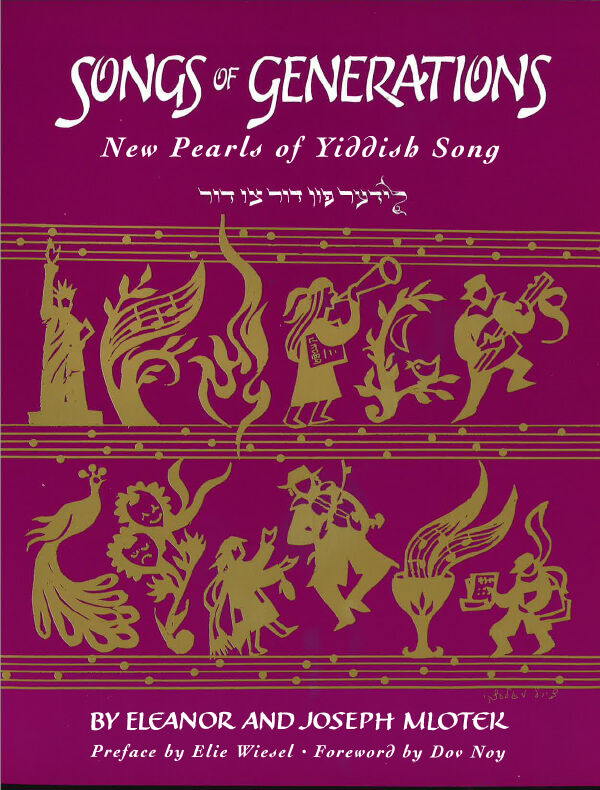Folksong published by M. Kipnis in 1925, which he collected from the poet Z. Segalovitsh. Chaim Tauber set his song “Motl der opreyter” to this melody. It also appears in the popular Jewish dance “The Troika.”

Where were you
when there was money
and the dowry was on the table?
Today you are here,
when there is no money
and life has become so grim.
Where were you
when we were young,
and life was as sweet as sugar?
Today you are here,
when my hair is gray
and life has become so grim.
Where were you
when we were young
and my heart burned with love?
Today you are here,
my head is already gray
and my hands tremble.
Vu bistu geven, Az gelt iz geven
Un der nadn iz gelegn oyfn tish? Haynt bistu do,
Az keyn gelt iz nishto
Un dos lebn iz gevorn azoy mis.
Vu bistu geven, Az yugnt iz geven
Un dos lebn iz geven tsuker zis? Haynt bistu do,
Az di hor zaynen gro
Un dos lebn iz gevorn azoy mis.
Vu bistu geven
Az yugnt iz geven,
Dos harts hot mit libe gebrent? Haynt bistu do
Az der kop iz shoyn gro
Un es tsitern bay mir shoyn di hent.
װוּ ביסטו געװען
אַז געלט איז געװען
און דער נדן איז געלעגן אױפֿן טיש?
הײַנט ביסטו דאָ,
אַזּ קײן געלט איז נישטאָ
און דאָס לעבן איז געװאָרן אַזױ מיאוס.
װוּ ביסטו געװען
אַז יוגנט איז געװען
און דאָס לעבן איז געװען צוקער-זיס?
הײַנט ביסטו דאָ,
אַז די האָר זענען גראָ,
און דאָס לעבן איז געװאָרן אַזױ מיאוס.
װוּ בִּיסטו געװען
אַז יוגנט איז געװען,
דאָס האַרצ האָט מיט ליבע געברענט?
הײַנט ביסטוֹ דאָ
אַז דער קאָפּ איז שױן גראָ
און עס ציטערן בײַ מיר שױן די הענט.
Song Title: Vu Bistu Geven?

The Songs of Generations: New Pearls of Yiddish Song anthology comprises songs that were either never printed before or appeared in rare and inaccessible publications — sometimes in different versions and without proper sources. Most of the songs in this book were submitted by readers of Chana and Yosl’s column “Perl fun der yidisher poezye” (Pearls of Yiddish Poetry) in the Yiddish newspaper Der Forverts (The Forward), initiated in October, 1970. Over 25 years, thousands of songs were collected in correspondence and on cassettes from readers throughout the world, and they represent a veritable national Yiddish song archive. Chana Mlotek, in her introduction, writes, “In the course of years the inquiries, contributions and enthusiasm of these readers have kept our own interest unflagging and have reinforced our dedication to this effort. And in recent years our participants have also been augmented by new readers from the former Soviet Russia, who receive our newspaper there or from newly-arrived immigrants in this country and Israel.”